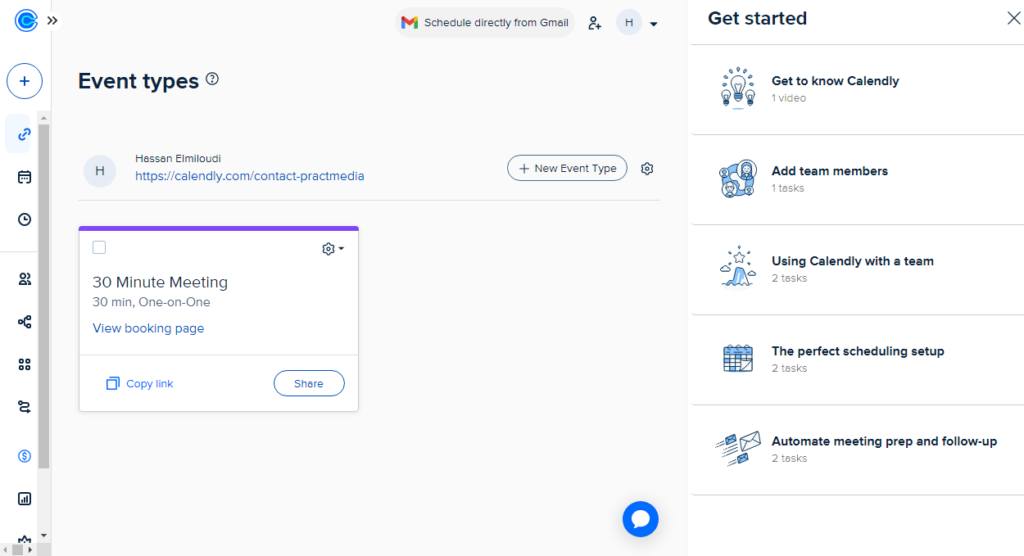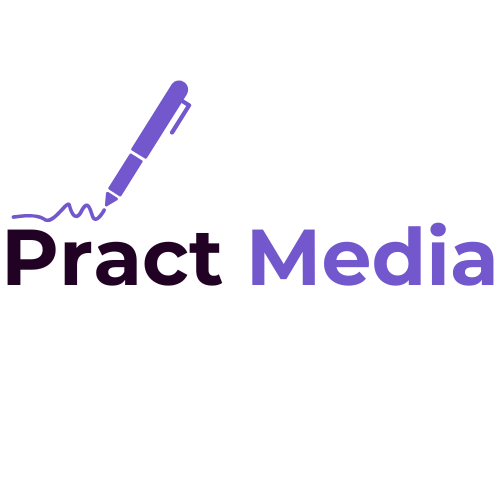How Do I Start a Coaching Business – Ultimate Guide
Have you ever dreamed of making your passion a business?
We did, and it led us to start coaching.
The coaching world is enormous, worth $4.564 billion.
It’s not just about money; it’s about changing lives and gaining freedom.
When we first considered starting a coaching business, we felt excited but unsure. But we took the risk.
Our online coaching business made six figures in just four months.
By the eleventh month, we hit seven figures.
It shows what’s possible with passion and the right plan.
Are you thinking about starting a personal or life coaching business?
This guide will help you on How do I Start a Coaching Business every step of the way.
We’ll cover finding your niche, attracting clients, and more.
Ready to start this rewarding journey?
Let’s explore how to make your expertise a successful coaching business.
Key Takeaways
- The coaching industry is valued at $4.564 billion, offering significant growth potential.
- Starting a coaching business can lead to financial freedom and personal fulfillment.
- Essential steps include finding your niche, getting certified, and setting up your business structure.
- Minimal initial investment is required, with essential costs including software for calls and scheduling.
- Focus on getting your first client before investing heavily in a website or other tools.
- The average coaching salary is $52,800, with potential for much higher earnings.
- Diversifying income streams through group coaching and online courses can boost profitability.
Understanding the Coaching Industry Landscape
The coaching industry is booming, offering exciting opportunities for aspiring coaches.
The coaching business plan landscape looks promising, with a market value of $6.25 billion and a 17% growth from the previous year.
This rapid expansion allows new coaches to enter the market and build successful practices.
Current Market Value and Growth Potential
Due to the growing demand for coaching services, coaches can tap into a substantial client base.
The average hourly rate for a life coach in 2023 was $244, a 9% increase from 2019.
This upward rate trend reflects the industry’s strong growth potential and the value clients place on coaching services.
Types of Coaching Services in Demand
The coaching market trends show that diverse niches are gaining popularity.
These include life coaching, executive coaching, career coaching,
business coaching, health and wellness coaching, financial coaching, performance coaching, mindfulness coaching, relationship coaching, and spiritual coaching.
Choosing a specific niche can help coaches distinguish themselves and attract the right target market.
Industry Trends and Future Outlook
The coaching industry is evolving rapidly.
Online coaching has significantly increased despite a gap between supply and demand. Marketing skills are crucial for success,
with many coaches struggling to promote their services effectively.
A well-designed website and strategic social media planning are essential for attracting and converting clients in this competitive landscape.
Choosing a niche in coaching can enable coaches to command higher fees for their services, streamline their marketing efforts, and establish credibility in their field.
As the industry continues to grow,
coaches who adapt to these trends and focus on developing their marketing skills and coaching expertise will likely thrive in this dynamic and rewarding field.
How Do I Start a Coaching Business
Starting a coaching business can be thrilling.
The industry is worth $2.85 billion globally and offers many growth opportunities.
However, planning well is critical, as 82% of coaches fail in the first two years.
Essential Steps to Launch Your Practice
First, find your coaching niche.
It could be business, life, or health and wellness coaching. Then, get certified to look more professional.
Set up your company and work on your coaching skills.
A famous coach, Alan Weiss, says six skills are crucial:

Critical thinking, speed, excellent language skills, curiosity, enthusiasm, and humor.
Required Resources and Tools
Your coaching business needs just a few things.
A good internet connection is essential.
You’ll also need call software ($10-$20/month) and scheduling software ($10/month).
Make a client contract to keep yourself safe.
These tools are fundamental for your online coaching business.
It’s 68% less likely to fail than traditional ones.
Initial Investment Considerations
Coaching businesses have low costs but can be very profitable.
Life coaches can make $100-$150 an hour, and the top can earn up to $35,000 monthly.
A study by the International Society for Performance Improvement found a 221% return on investment for coaching programs.
You can create a coaching brand that shines in this competitive field with careful planning.
Finding Your Perfect Coaching Niche
Choosing the right coaching niche is critical to a successful business.
Focusing on a specific area helps you find the right clients and improve results.
It also makes your work more efficient and allows for more profound service.
Think about your passions, skills, and experiences.
Look at areas where you’ve grown or become an expert.
Your job, hobbies, and strengths can point you to a good niche.
Look at niches based on what you enjoy, what’s in demand, and what’s profitable. Make sure your clients can afford your services.
Some good niches include wellness, life coaching, high-performance, career, and small business coaching.
Ask yourself about your interests and experiences to find your ideal niche.
Don’t be too broad. Passion is great, but your niche must be marketable.
Stick with your choice for lasting success.
Research the demand, look at your competitors, and think about pricing.
Use tools like Google Keyword Planner to find keywords with many searches but less competition.

This way, you’ll find a niche that fits your skills and what the market needs.
Legal Requirements and Business Setup
Starting a coaching business means knowing the legal rules.
Although coaching isn’t heavily regulated in the US,
Taking specific steps can help your business run well and keep you and your clients safe.
Business Structure Options
Many coaches start alone, but becoming an LLC protects your assets.
This choice affects taxes and who’s liable.
Think about your future goals before deciding.
Getting trademarks can also increase your business’s value—the last 10 years if you register them correctly.
Insurance and Certification Requirements
Professional liability insurance is critical for coaches. It covers mistakes in advice.
While not required, getting certified makes you more credible.
The International Coaching Federation (ICF) offers respected certifications like ACC, PCC, and MCC.

These require over 100 hours of training and practice.
Legal Documentation and Contracts
Having solid contracts is crucial for coaching partnerships.
Ensure they include service details, session plans, rates, and what happens if someone cancels.
Also, have a privacy policy on your website to follow data protection laws.
While there are few legal rules for coaching, these steps help protect your business and build trust with your clients.
“Clear agreements and boundaries set the stage for transformative coaching relationships.”
Remember, certifications aren’t legally needed but can boost your skills.
Focus on building a solid base that meets legal requirements and supports your unique coaching style.
Building Your Coaching Brand
Creating a solid coaching brand is critical to success. It makes you stand out and draws in the right clients.
Let’s dive into the essential parts of building your brand and being online.
Creating Your Brand Identity
Your brand shows who you are and what you believe in.
Pick colors, fonts, and designs that appeal to your audience.
Being consistent helps people recognize you.
A catchy tagline can make your brand unique. It tells people what you’re all about.
Developing Your Online Presence
A professional website and social media are essential.
Choose platforms where your clients are, and share helpful content to showcase your skills.
Remember, people need to see your brand many times before they buy. So, keep sharing and engaging.
Establishing Your Unique Value Proposition
Your unique value proposition makes you different.
Clearly say who you help and what problems you solve.
Using your name or “coaching” can make you more relatable.
Client testimonials boost your credibility.
For more authenticity, use photos or videos.
A strong brand helps you grow and get noticed online.
“A consistent brand identity can increase a company’s revenue by up to 23%.”
Focus on building your brand and online presence.
This will attract clients who fit your style and provide a solid base for your business to grow.
Developing Your Coaching Programs
Creating effective coaching programs is critical to your success.
Start by defining your coaching model based on your niche and target audience.
You can choose from one-on-one sessions, group coaching, or online programs.
When creating your programs, focus on what your clients need and want.
This will provide value and improve results.
Being creative in planning your programs will also help you stand out in the coaching world.
To improve your coaching program development, use client journey mapping.
It lets you see the whole client experience, which helps you find areas for improvement and create more engaging programs.
As you develop your coaching models, always be open to feedback and ready to change.
The coaching world constantly evolves, and flexibility helps meet new client needs.
You’ll build a strong base for your coaching business by continually improving your programs.
“The best coaching programs are those that evolve with their clients, providing tailored solutions for real-world challenges.”
Creating successful coaching programs is more than just planning.
It’s about implementing, engaging, and connecting personally with your clients.
By focusing on these, you’ll make programs that connect with your clients and grow your business.
Setting Your Coaching Prices and Packages
Pricing your coaching services can be tricky.
You want to offer value and earn what you’re worth.
Explore some effective pricing strategies and package design tips to find the right balance.
Pricing Strategies for Different Service Levels
Penetration pricing is a popular method.
It involves starting with a lower rate to attract clients.
For instance, a 3-month package for $1,500 can quickly grow your client base.
Another strategy is necessity pricing.
Here, you set rates to replace your current income with revenue from about ten clients over three months.
Creating Value-Based Pricing Models
Value-based pricing focuses on results, not time. Instead of hourly rates, offer a 3-month program with 12 calls.
This highlights the transformation you provide, not just the time spent.
Industry standards vary for health, relationship, or career coaches.
Top professionals can earn five to six figures.
Package Structure and Options
When designing packages, offer different tiers for various client needs and budgets.
You might have a basic package with fewer sessions,
a standard package with more support, and a premium package with extra perks like email access or group coaching sessions.
“Your pricing should reflect the value you bring to your clients’ lives. Don’t be afraid to charge what you’re worth.”
Your coaching package design should match your expertise and target market.
Whether you’re a life coach earning $61,900 or an executive coach earning up to $180,000, your pricing should show your unique value and the results you deliver.
Marketing Your Coaching Services
Effective marketing is vital in attracting clients and growing your coaching business.
Our guide shares 31 proven tactics for increasing your visibility and client base. Let’s explore some essential strategies.
Social media is crucial in today’s marketing world. Facebook and LinkedIn are top choices for marketers.
With over 1.8 billion monthly users in Facebook Groups, these sites are great for connecting with potential clients.
YouTube, the second most popular site, is also a powerful tool for showing off your skills.
Creating valuable content is a must for successful marketing.
It can boost your website traffic and lead generation, and email marketing campaigns with engaging content can turn leads into clients.
Free offers like consultations or e-books are great for attracting clients. One coach made six figures in just four months with free coaching calls.
Using tools like Calendly for scheduling makes it more accessible.

Public speaking and podcasts are also effective.
They help build your authority and attract clients.
These platforms let you share your expertise and connect with your audience.
The secret to successful marketing is using a mix of strategies and consistently adding value. By applying these tactics,
you’ll be well on your way to attracting clients and growing your business.
Attracting and Retaining Your First Clients
To get your first coaching clients, start by knowing who they are.
Find out what problems they face and offer solutions.
Use free discovery calls to show your skills and gain trust.
Also, use your network and go to events to meet people who might need your help.
Client Acquisition Strategies
Make content that solves common problems in your field.
Share your knowledge on blogs, videos, and social media.
This will draw in potential clients.
Make your website easy to find online. Ask happy clients to tell others about you to grow your business naturally.
Building Strong Client Relationships
Keep in touch with your clients personally.
Listen to what they say and offer solutions that fit them.
Be clear about what you can do and what you expect from the start.
Also, celebrate their wins to make your partnership feel like a journey of success together.
Managing Client Success and Testimonials
Track your clients’ performance and change your approach if necessary.
Use strategies to keep clients coming back.
Always ask for feedback to improve.
Collect and share testimonials to show off your success and attract more clients.
Our coaching sessions have been transformative. I’ve achieved goals I never thought possible!
Remember, it’s cheaper to keep clients than to get new ones.
Focus on giving great value to build a loyal client base.
Happy clients will tell others, which helps your business grow without spending much on ads.
Conclusion
Starting a successful coaching business needs hard work, always learning, and a love for helping others reach their dreams.
This guide has given you the tools to grow a thriving coaching practice.
The coaching world is exciting, with many coaches making big money each year.
Ensure your coaching packages show actual results to shine in this competitive field.
Use technology to offer services online, reach more people through digital platforms, and consider group coaching to make a more significant impact.
The International Coach Federation (ICF) offers excellent training to improve your skills and reputation.
As your coaching business grows, aim for steady, slow growth and avoid the trap of just getting paid for hours.
Offer workshops, e-books, and online courses to earn money in different ways.
Keep up with the latest trends by attending conferences, reading blogs, and connecting with other coaches.
With determination and flexibility, you’ll do great in the rewarding coaching world.
FAQ
How much does it cost to start a coaching business?
Starting a coaching business can be affordable.
You’ll need an internet connection, call software ($10-$20/month), and scheduling software ($10/month).
You might also spend on certification, website, and marketing. This low start-up cost can lead to a profitable business with high prices.
Do I need a certification to become a coach?
Certification is not always needed but can boost your credibility.
Look into ICF-accredited programs for recognized credentials.
Some niches, like nutrition coaching, might need specific licenses.
Research your niche’s requirements and consider certification as a professional investment.
How do I choose a coaching niche?
Pick a niche based on your skills, strengths, and experiences.
Think about areas where you’ve overcome challenges and skills from your job. Also, consider your hobbies and core strengths.
Choose a niche that interests you, has demand, and is profitable.
Make sure your clients can afford your services. Popular niches include wellness, life, career, and business coaching.
What business structure should I choose for my coaching business?
Most coaches choose an LLC or sole proprietorship. An LLC protects your assets, while a sole proprietorship is easier to set up.
Talk to a legal expert or accountant to find the best structure for your goals.
How do I price my coaching services?
Pricing depends on your expertise, target market, and value. Offer tiered packages for different budgets.
Use value-based pricing to highlight your results. Research competitors and adjust your prices based on your unique offerings.
What are effective marketing strategies for a coaching business?
Good marketing includes content marketing, social media, networking, public speaking, and free discovery calls.
Show your expertise and client results. Develop a clear message that speaks to your audience and showcases your value.
How can I attract my first coaching clients?
Attract clients with free discovery calls, referrals, valuable content, and social media.
Offer introductory rates or packages to build your base.
Networking and speaking can also help you find clients.
What tools do I need to run an online coaching business?
You’ll need video conferencing software, scheduling tools, a CRM system, and reliable internet. You might also need a website platform,
email marketing software, and project management tools. These depend on your business size and model.
How do I create a strong coaching brand?
Start by defining your unique value proposition and target audience.
Create a consistent visual identity with a logo, color scheme, and typography.
Build a professional website and maintain social media profiles.
Share content that shows your expertise and aligns with your brand values. Use your name or add “coaching” if it’s familiar.
What are the most profitable coaching niches?
Profitable niches include executive, business, health and wellness, relationship, and financial coaching.
High-performance and career transition coaching are also sought after. Profitability depends on demand, expertise, and the audience’s ability to pay.







